Do you know that nearly 8 in 10 people will experience lower back pain at some point in their lives? Surprisingly, it’s not just aging or injury — often it’s due to weak, under-trained muscles that support the spine. The good news? A simple pair of dumbbells can change that narrative.
Strengthening your lower back isn’t just about pain relief — it’s about boosting posture, improving athletic performance, and preventing injuries.
In this guide, you’ll discover 14 effective dumbbell exercises that don’t require a gym membership but do promise to fire up those underused back muscles, banish pain, and restore strength from the core out.
Let’s unlock the power of dumbbells for your lower back — one rep at a time.
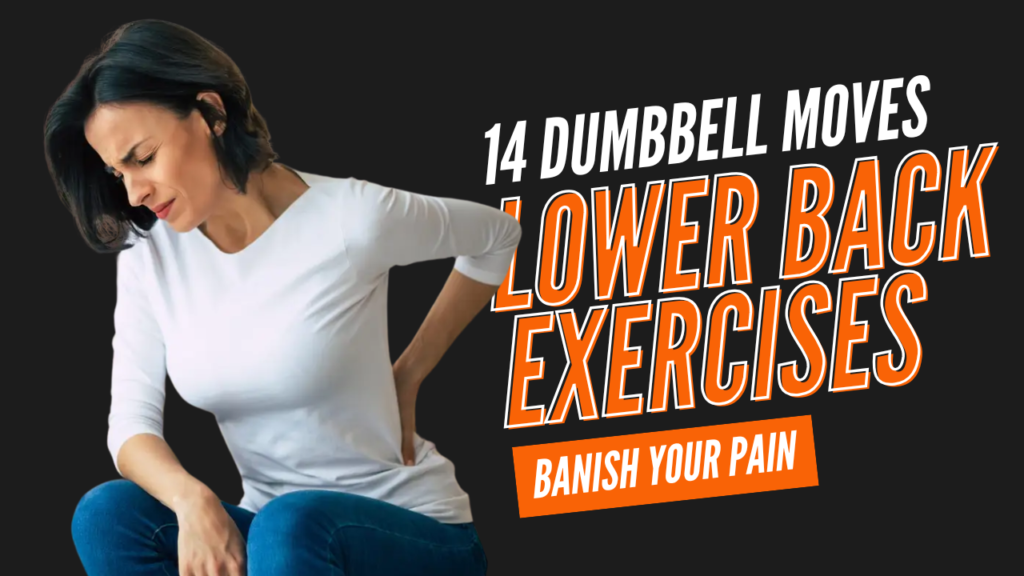
Table of Contents
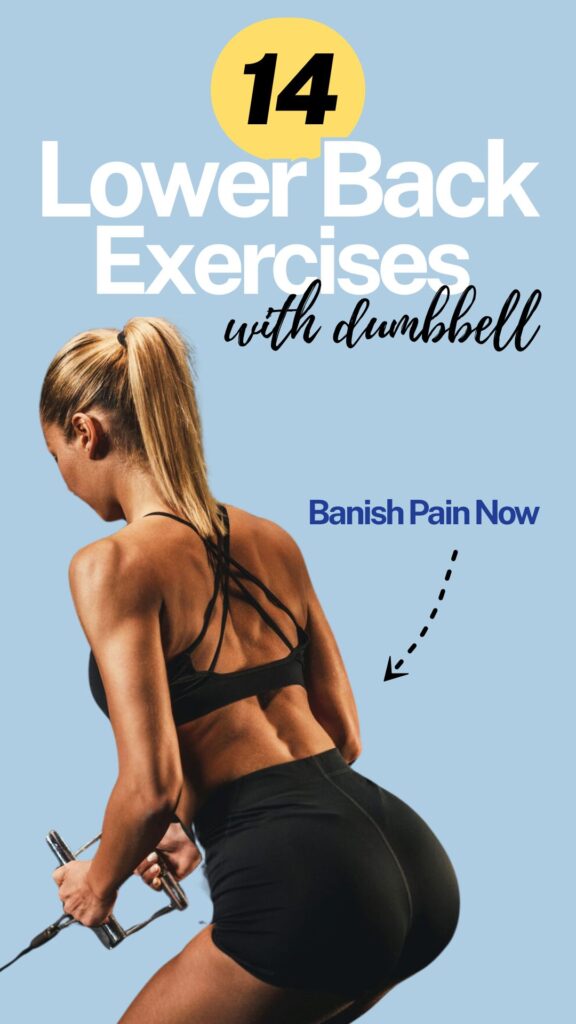
What Can Happen After 30 Days of Lower Back Dumbbell Exercises
| Improvements | What It Means for You |
|---|---|
| Increased lower back strength | Better support for your spine and reduced pain |
| Improved posture | Stand and sit straighter with less slouching |
| Reduced muscle stiffness | More flexibility and easier daily movements |
| Enhanced core and glute activation | Stronger foundation for all other workouts |
| Decreased risk of injury | Spine and surrounding muscles become more resilient |
| Better hip-hinge mechanics | Safer lifting in workouts and daily life |
| Boosted body awareness and stability | Improved balance and coordination |
| Relief from mild chronic lower back discomfort | Noticeable pain reduction in many cases |
| Improved confidence in movement | You’ll feel stronger, more mobile, and energized |
| Habit formation & workout consistency | Builds discipline, making exercise a regular routine |
Also Read: 10 Gym-Only Shoulder Exercises That Maximize Strength & Muscle Definition
Do’s and Don’ts for Dumbbell Lower Back Exercises
| Do’s | Don’ts |
|---|---|
| Start with light weights to master form | Don’t lift heavy weights without proper technique |
| Keep your back flat and core engaged | Don’t arch or round your back during exercises |
| Warm up before starting your workout | Don’t skip warm-up or jump straight into heavy lifts |
| Focus on controlled, slow movements | Don’t rush through reps just to finish faster |
| Use a mirror or camera to check your posture | Don’t guess your form—incorrect form increases risk |
| Perform exercises 2–3x a week with rest days | Don’t train the lower back daily — recovery matters |
| Breathe consistently — exhale on exertion | Don’t hold your breath while lifting |
| Stretch your hips, hamstrings & glutes post-workout | Don’t ignore flexibility — it complements strength |
| Listen to your body and stop if you feel sharp pain | Don’t push through serious discomfort or strain |
| Consult a professional if you have chronic pain | Don’t self-diagnose or treat ongoing back issues alone |
1. Dumbbell Romanian Deadlift
Targets: Lower back, hamstrings, glutes
How to:
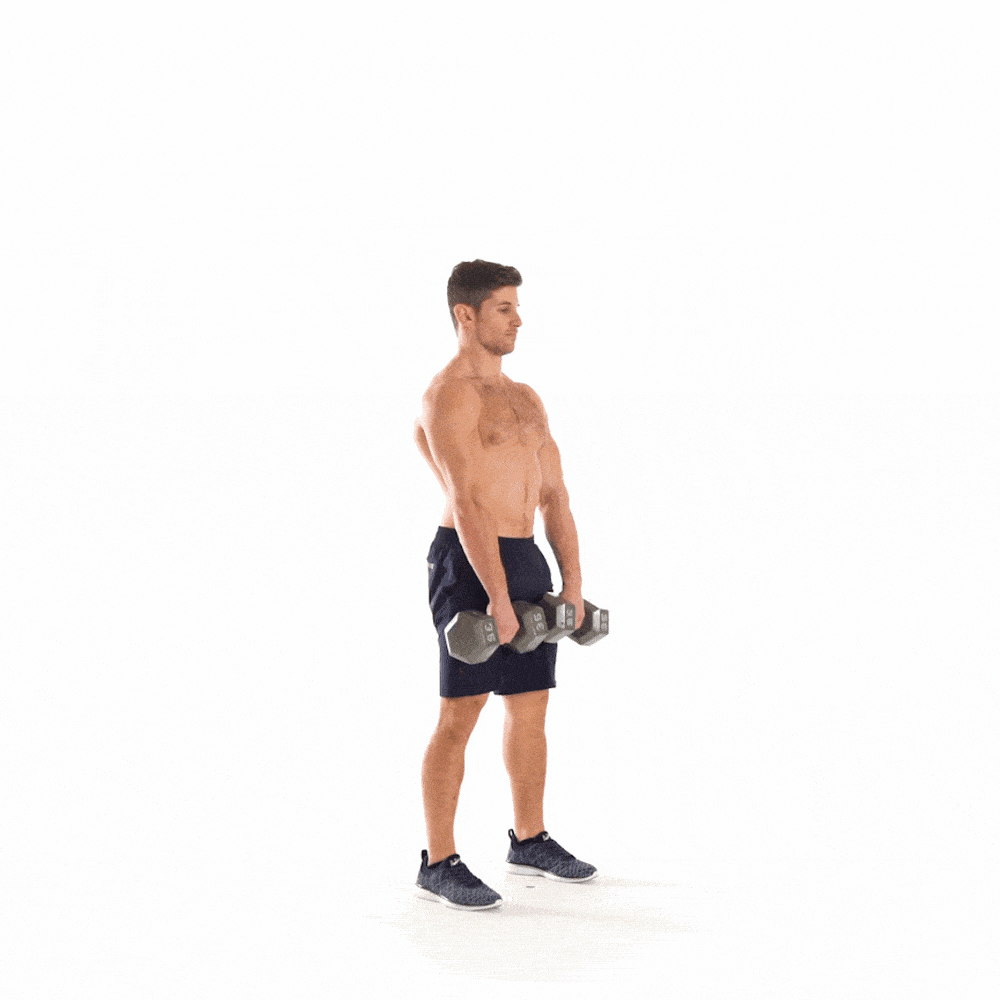
- Stand with feet hip-width apart, dumbbells in front of thighs.
- With a soft bend in knees, hinge at hips, lowering dumbbells along legs.
- Keep back flat, and return to standing.
Why it works: It teaches proper hip hinge mechanics while strengthening spinal stabilizers.
Also Read: 13 Adductor Exercises You Can Do With Gym Equipment for Stronger Inner Thighs
2. Dumbbell Suitcase Deadlift
Targets: Quadratus lumborum (side of the lower back), core
How to:
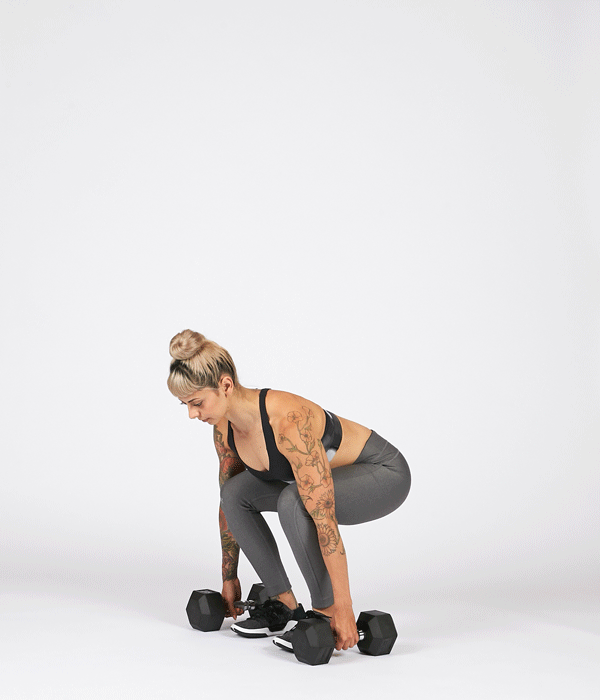
- Hold one dumbbell by your side like a suitcase.
- Bend at hips and knees to lower the dumbbell to the floor.
- Stand up while resisting side bending.
Bonus Tip: Work one side at a time to challenge anti-lateral flexion — crucial for real-life movements.
3. Dumbbell Good Mornings
Targets: Lower back, hamstrings, glutes
How to:
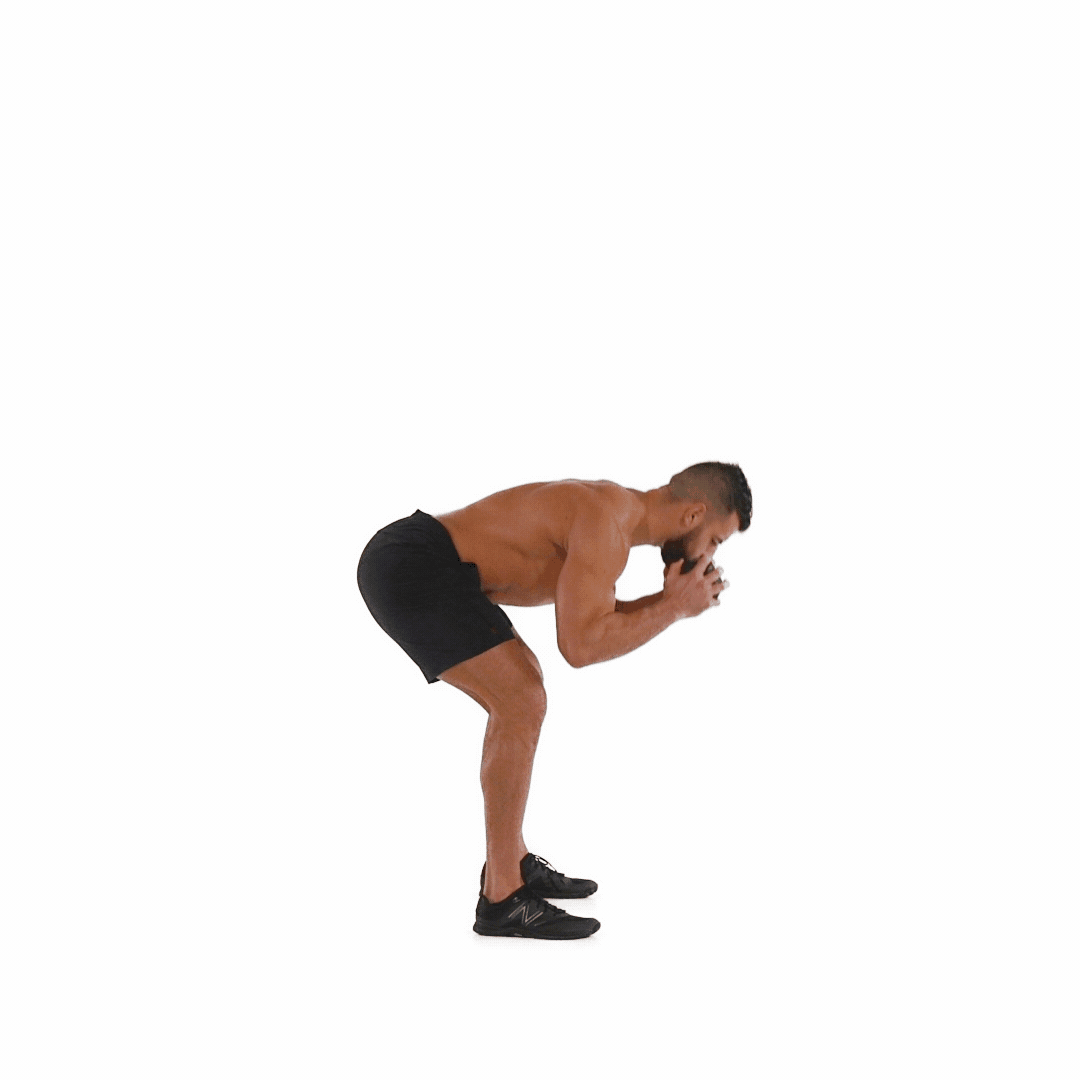
- Hold dumbbells at your shoulders or place them lightly on your upper traps.
- Hinge at the hips with a flat back until the torso is nearly parallel to the floor.
- Engage glutes and return upright.
Myth Buster: Good mornings aren’t dangerous if done with proper form and lightweight — they’re spine-saving!
4. Bird-Dog Row with Dumbbell
Targets: Core, spinal erectors, balance
How to:
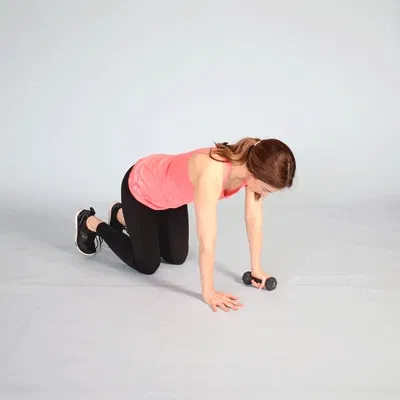
- Get into a bird-dog position (on all fours).
- Hold a light dumbbell in one hand and row while extending the opposite leg.
- Maintain spinal alignment and control.
Why it works: Builds lower back endurance and cross-body coordination.
Also Read: 12 Best Bodyweight Adductor Exercises To Sculpt Your Inner Thighs
5. Dumbbell Hip Thrust
Targets: Glutes, lower back
How to:
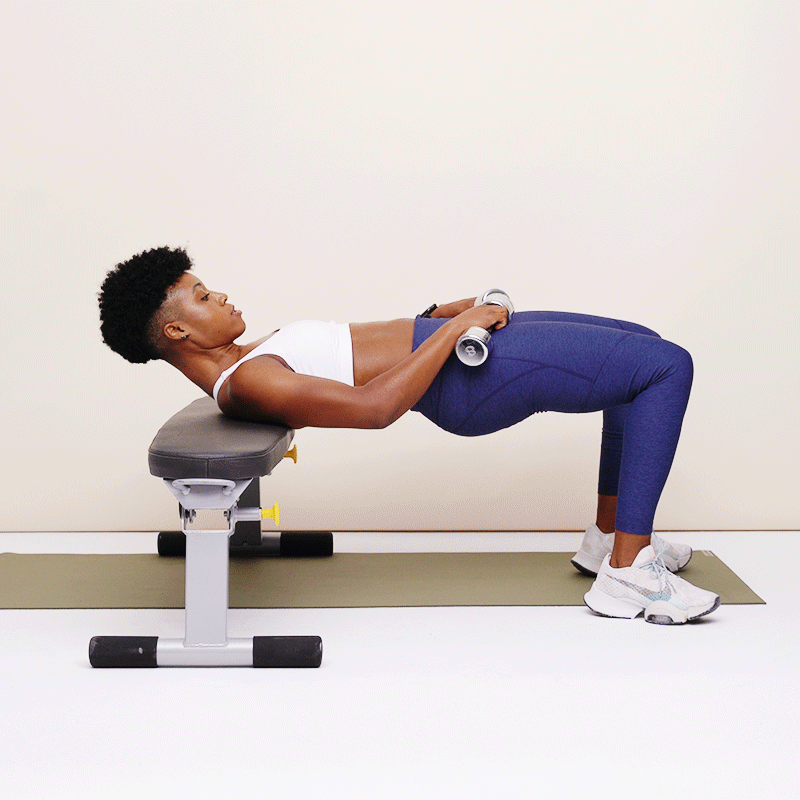
- Sit on the ground with your shoulders against a bench.
- Place a dumbbell on your hips, and thrust upwards by driving through heels.
- Squeeze glutes at the top, lower down slowly.
Interesting Fact: Strong glutes help take pressure off the lower back during lifting and walking.
6. Dumbbell Side Bend
Targets: Obliques, QL, lower back
How to:
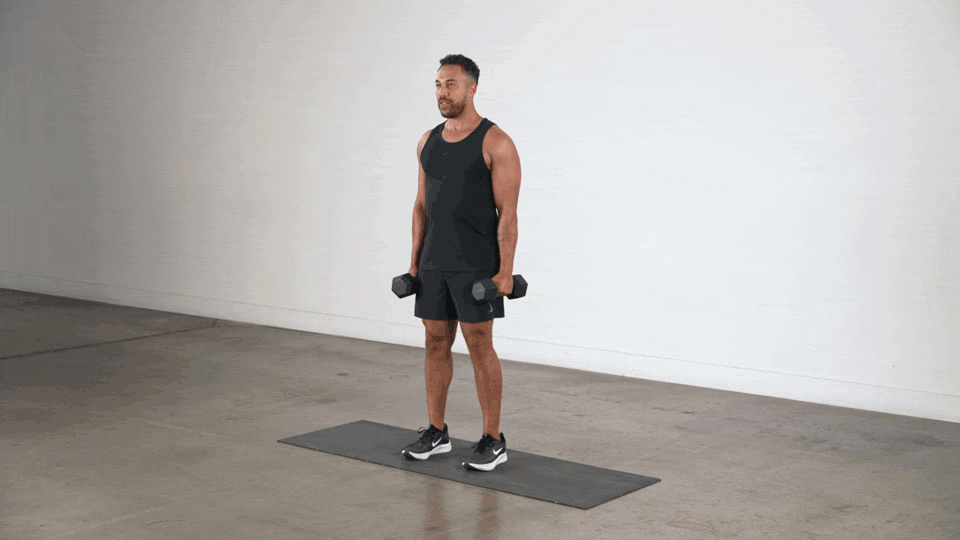
- Stand tall, dumbbell in one hand.
- Slowly bend sideways toward the weight, then return.
- Repeat both sides.
Caution: Don’t rush it — this one’s about controlled movement, not heavy load.
7. Renegade Row
Targets: Core, lats, spinal stabilizers
How to:
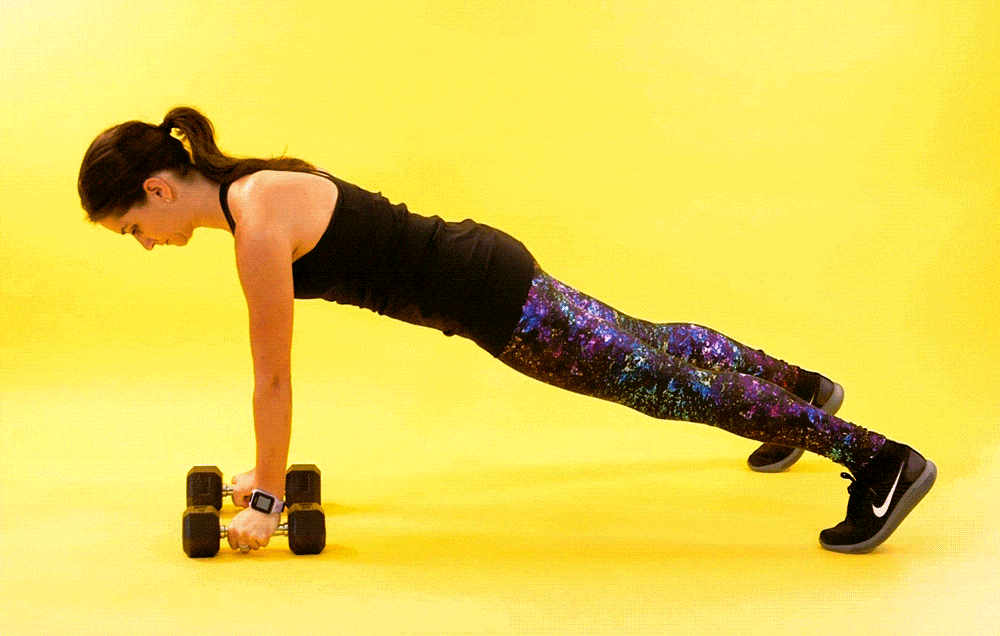
- In a push-up position, hands gripping dumbbells.
- Row one dumbbell to your ribs while balancing on the other.
- Alternate sides.
Why it works: Challenges the deep stabilizers of the spine while engaging the full posterior chain.
Also Read: 10 Forearm Exercises Using Gym Gear That Build Iron Grip & Bigger Arms
8. Dumbbell Reverse Lunge with Twist
Targets: Lower back, glutes, core
How to:
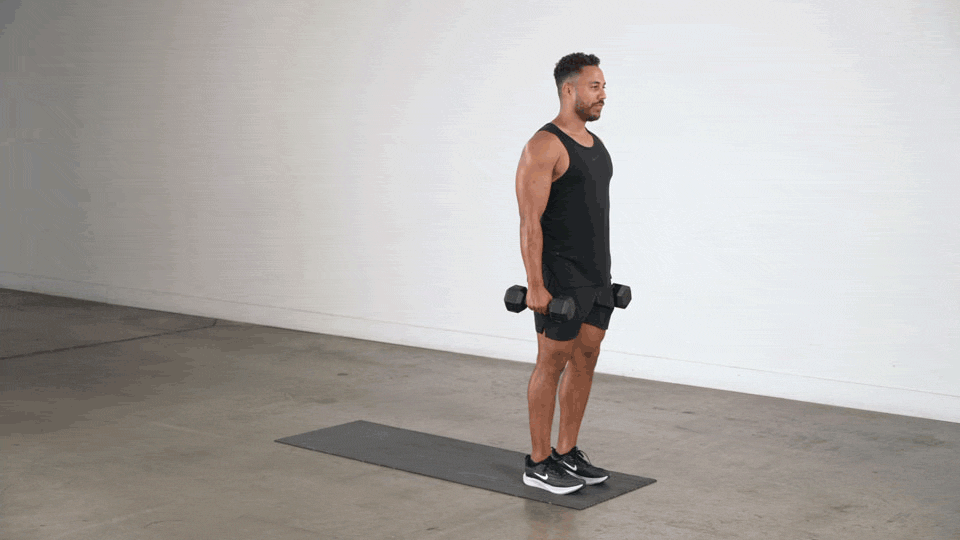
- Step back into a lunge holding one dumbbell at chest.
- Rotate the torso toward the front leg.
- Return and repeat.
Did You Know? Controlled rotation strengthens the muscles that stabilize the spine during daily tasks like turning or lifting.
9. Dumbbell Dead Bug Press
Targets: Deep core, lumbar support muscles
How to:
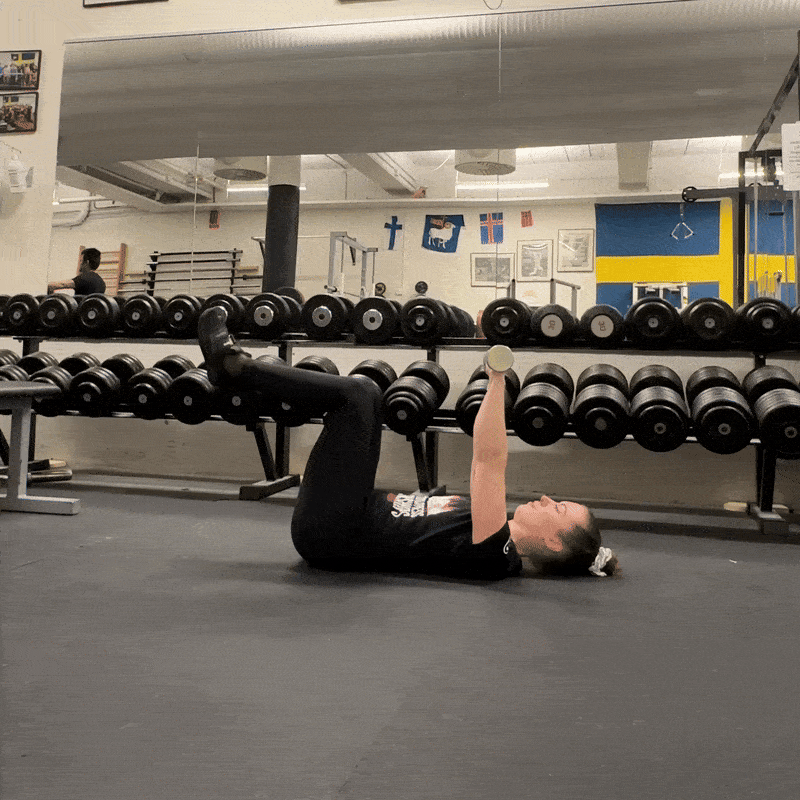
- Lie on your back with knees bent 90°, dumbbells above your chest.
- Extend opposite arm and leg, keeping back flat.
- Return and switch sides.
Pro Tip: Keep your core engaged and avoid arching your lower back.
10. Dumbbell Superman Raise
Targets: Erector spinae, glutes
How to:
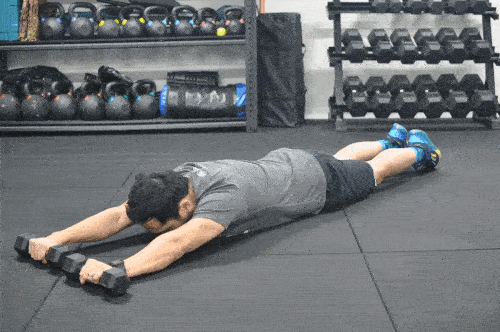
- Lie face down with light dumbbells in each hand.
- Raise arms, chest, and legs off the ground.
- Hold, then lower slowly.
Why it works: Mimics the movement of the spine’s postural muscles in daily life.
Also Read: 12 Secret Bodyweight Forearm Exercises (No Weights, Maximum Gains)
11. Dumbbell Glute Bridge March
Targets: Core, glutes, lower back
How to:
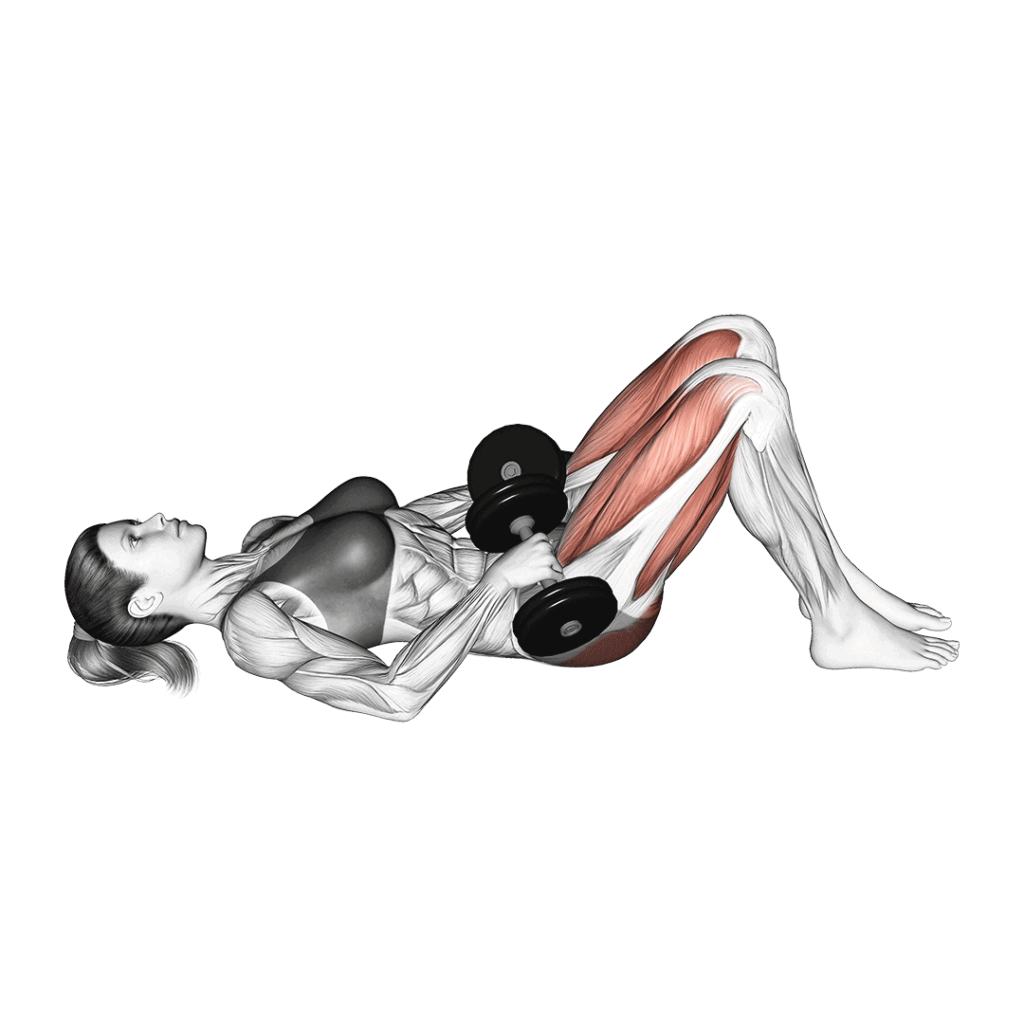
- Perform a glute bridge with a dumbbell on the hips.
- Alternate lifting knees in a marching motion.
- Don’t let your hips sag!
Bonus: Trains anti-rotational stability, essential for pain-free posture.
12. Single-Leg Dumbbell Deadlift
Targets: Lower back, hamstrings, balance muscles
How to:

- Hold the dumbbell in the opposite hand of the standing leg.
- Hinge at hips, extending the free leg behind you.
- Keep spine neutral and return to start.
Why it works: Builds unilateral strength and teaches hip control — crucial for a healthy back.
13. Dumbbell Pullover on Floor
Targets: Lats, core, spinal extension
How to:
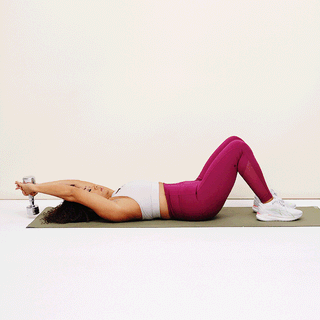
- Lie flat on the back with the dumbbell overhead.
- Slowly lower it behind you, then return.
- Keep ribs down and abs engaged.
Tip: Avoid letting your back arch off the floor for maximum core engagement.
Also Read: 10 Must-Try Trapezius Exercises Using Gym Equipment You’re Underusing
14. Bent-Over Dumbbell Row
Targets: Mid-back, erector spinae, lats
How to:
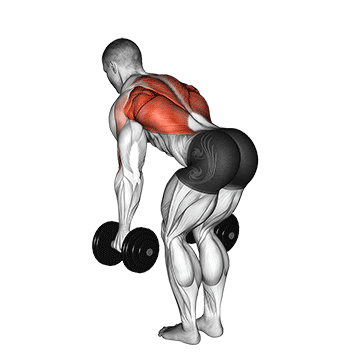
- Hinge at hips, back flat, dumbbells in each hand.
- Row both up to your ribs, squeeze your shoulder blades, and lower.
Why it works: Strengthens both the lower and upper back, aiding overall postural control.
Final Thoughts: Strong Back, Strong Life
Lower back pain isn’t a life sentence — it’s a warning sign. By strengthening the supporting muscles with functional, dumbbell-based movements, you not only alleviate pain but also build resilience, improve posture, and elevate your daily performance. These 14 exercises aren’t just rehab — they’re prehab for a stronger, pain-free life.
Also Read: 13 Bodyweight Trapezius Exercises to Build Strong, Broader Back
So grab those dumbbells, start slow, and move with intent. Your back has supported you long enough — now it’s time you return the favor.
Frequently Asked Questions (FAQs)
Can dumbbell exercises really help reduce lower back pain?
Yes, when performed with proper form, dumbbell exercises can strengthen the muscles that support the spine, reducing stress on the lower back and minimizing pain over time.
How often should I do these dumbbell exercises for the lower back?
Aim for 2–3 times per week to start. Allow at least one day of rest between sessions to give your muscles time to recover and rebuild.
Are these exercises safe for beginners?
Most of the exercises listed can be safely done by beginners using light weights and proper form. If you’re unsure, start without weights to master technique before progressing.
What dumbbell weight should I use for lower back exercises?
Use a weight that challenges you without compromising your form. For beginners, 5–15 lbs is a good starting range, depending on the exercise.
Should I feel soreness in my lower back after doing these exercises?
Mild soreness is normal, especially when activating underused muscles. However, sharp or shooting pain is a red flag — stop immediately and consult a healthcare professional.
Can these exercises help improve posture too?
Absolutely. Strong lower back muscles play a key role in maintaining an upright posture, especially if you sit for long hours.
I have chronic back pain. Should I do these exercises?
If you have ongoing or severe back pain, it’s best to consult your doctor or physical therapist before starting any strength routine. They may recommend modifications or alternatives.
Do I need any special equipment other than dumbbells?
No. All exercises can be done with just dumbbells and a yoga mat or flat surface. A bench can be helpful for a few variations like hip thrusts but is not essential.
How long does it take to see results?
With consistent training and proper nutrition, many people start noticing improvements in 2–4 weeks, including reduced pain and better movement.
Can I combine these lower back exercises with other workouts?
Yes, these movements work well as part of a full-body or lower-body strength routine. Just avoid overloading your spine in back-to-back sessions.










